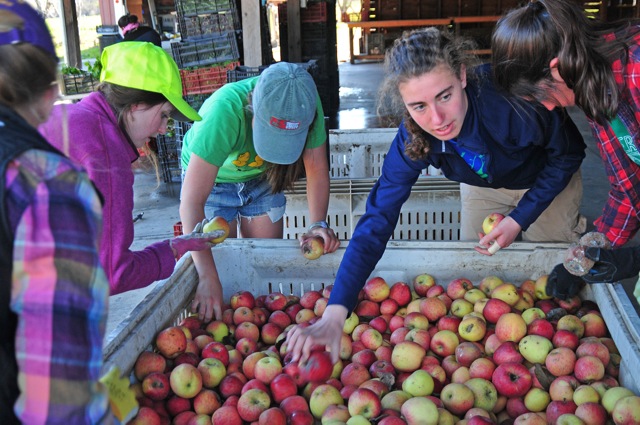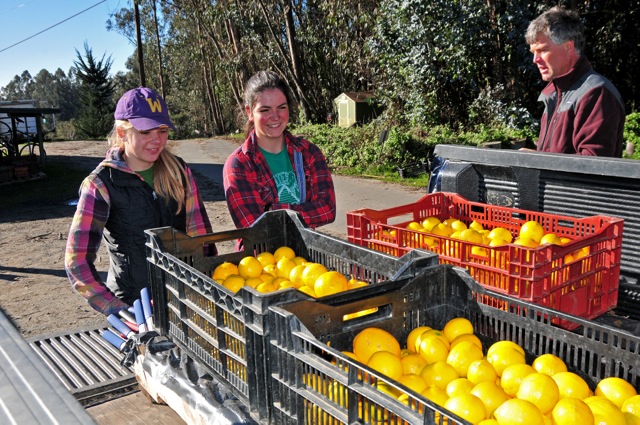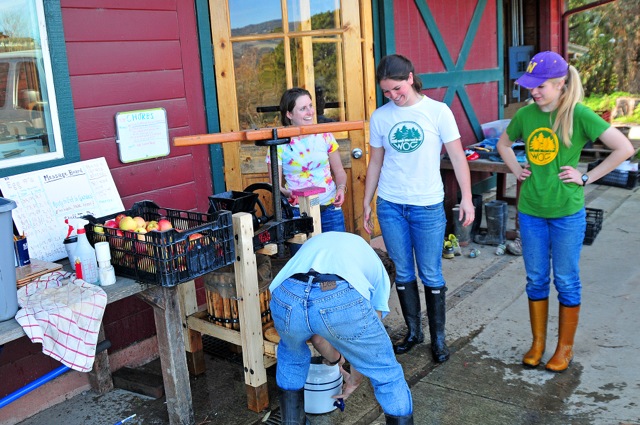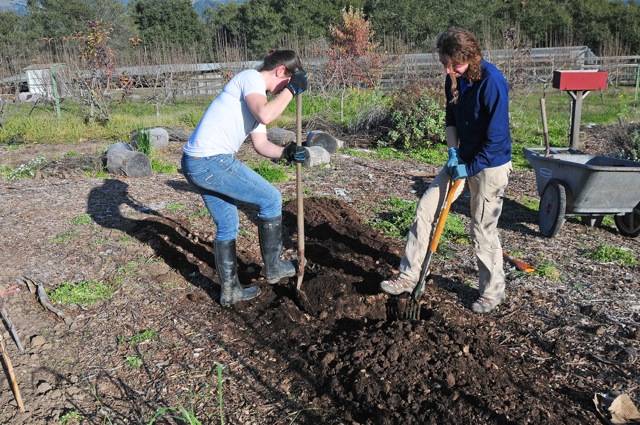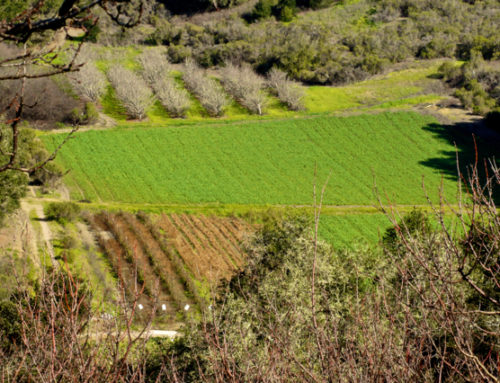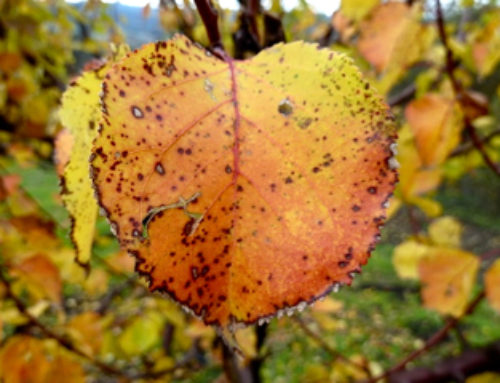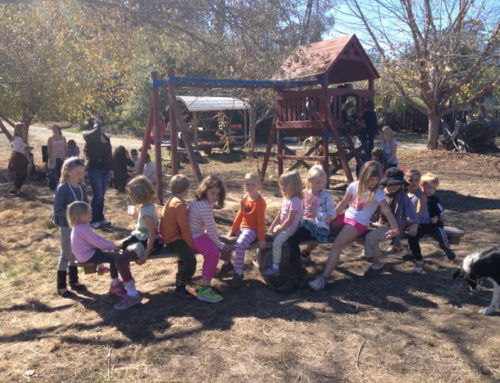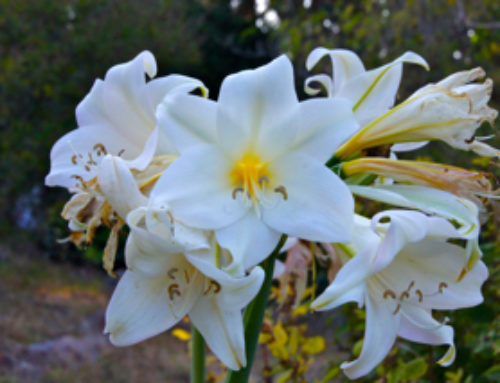The last 7 days we have enjoyed the visit of a group of 8 Williams College students who, together with their teacher, have been exploring California’s Central Coast foodshed to learn about food and farming issues as part of a 4 week-long winter course. With the weather being so nice, they had a chance to prune Quince trees, dig and prepare beds for spring planting in the Discovery Garden, mulch the kids’ strawberry patch, help sow seeds in the greenhouse, participate in the weekly harvest for farmer’s markets, and help Laura trim the hooves of our small goat herd. While on the farm, the group used the farm’s produce to prepare their own meals, and they got to fire up the cob-oven to make pizzas and enjoyed fresh apple cider using the farm’s apple press. We’ve enjoyed sharing our Live Earth Farm experience with them, and wish them well on their continued academic journey and pursuit of their personal goals and diverse interests in life.
Another inspirational event took place just yesterday as we hosted the visit of 90 participants of the International CSA Conference, held in conjunction with this year’s 33rd annual Ecofarm Conference. It was inspiring for me to witness a gathering of like minded people from around the world and from across this country who are all involved in the CSA movement. A movement which has grown from just a few hundred farms to several thousand if not ten thousands here in this country and around the world. It felt a little like belonging to an extended family that shares the same values and passions of stewarding the land, growing healthy communities and nurturing them with sustainably grown food. As is now customary, several of us from the farm will attend this year’s Ecological Farm Conference. Some of my inspiration to start Live Earth Farm in 1996 has roots in this inspirational gathering of people, all actively engaged in advancing ecologically based food systems. Attending this event not only leaves me inspired, but also recharged before the regular season starts up again in April. It’s a time to network with others ‘in our field’, and to learn about practical and economically viable practices in organic agriculture. It promotes and develops strategies to inform consumers and policy-makers about ecological growing practices and their direct impact on our health, the health of our communities and the larger natural environment we live in.
